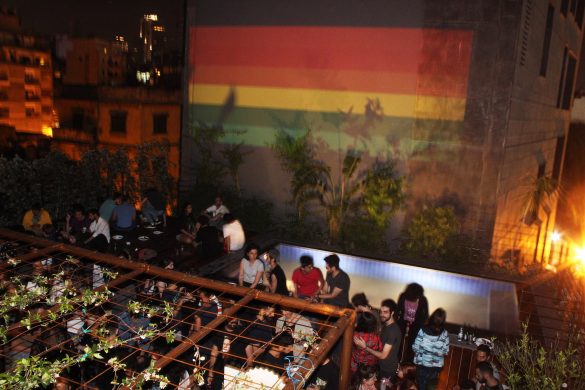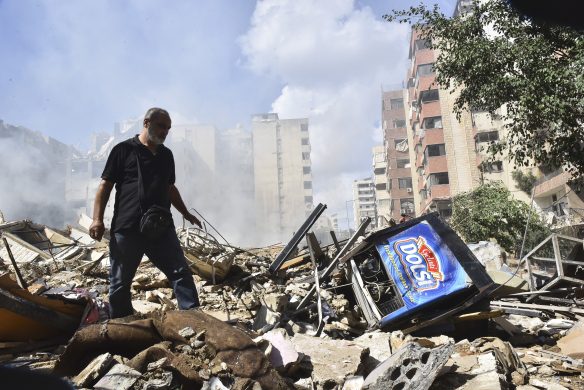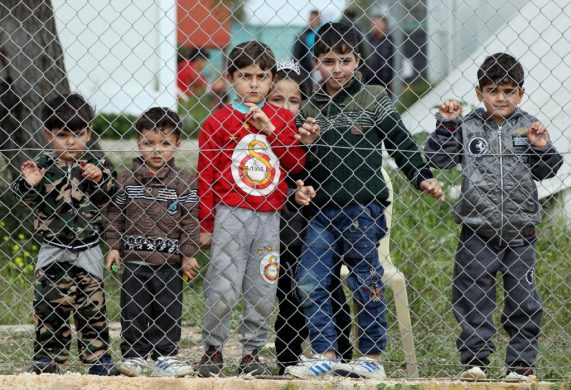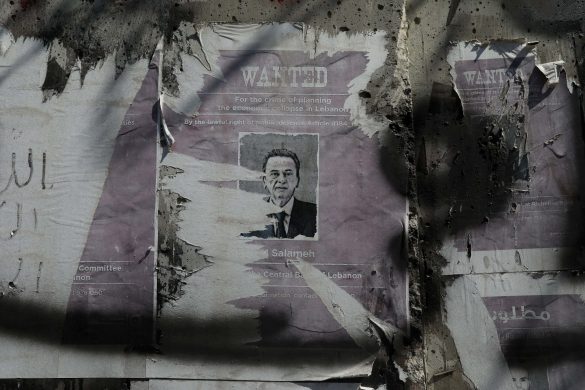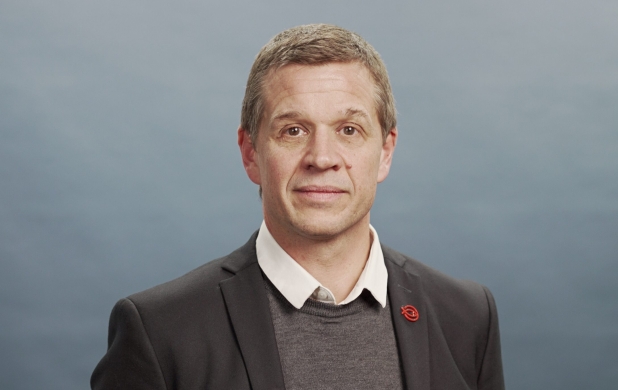Beirut Pride – Tro, håb og kærlighed
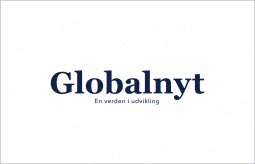
I anledning af Copenhagen Pride 2018 bringer Globalnyt temaet “Beirut Pride – Tro, håb og kærlighed”.
Her kan læseren møde manden bag Beirut Pride, Hadi Damien, og i en interviewserie på fire afsnit høre ham fortælle om fortiden, nutiden og fremtiden for Beirut Pride og LGBTQ+ i Libanon og regionen.
LGBTQ+ betyder “lesbian, gay, bisexual, transgender, queer” Plus-tegnet dækker over andre seksuelle identiteter.
Artikler i serien
Introduktion: En Pride er ikke bare en Pride (15.08.2018)
Afsnit 1: Hvordan det hele begyndte (16.08.2018)
Afsnit 2: Livet som LGBTIQ+ i Beirut (16.08.2018)
Afsnit 3: Beirut Pride 2018 – hvad sker der? (18.08.2018)
Afsnit 4: Tro, håb, kærlighed og nye vinde (18.08.2018)
Kulturguide: Libanons LGBT-scene (20.08.2018)
Building on the success of the 2017 edition, we tailored a new edition for May 2018, to serve, among other, as an announcement to three initiatives that will be conducted by Beirut Pride throughout the year. Beirut Pride 2018 started on May 12 with a celebratory event that pays tribute to parents who have properly received the homosexuality of their children without rejecting them, and who worked to make the family for everyone.
In this event, we launched a Beirut Pride initiative addressed to the families and their children to navigate the intersection of family dynamics and LGBTIQ+. That day, the opening party of Beirut Pride drained hundreds of people to cheer and to dance to the mixing of Richard Kahwaji. A brunch on Sunday gathered many people, featuring a talk about Trans in Lebanon, followed by a talk about masculinity and femininity in the Migrant Community Centre, before Beirut Grand Ball in the evening.
Monday, May 13, was a day of fruitful meetings, and we announced the Corporate Pledge in the early evening, another initiative addressing business policies related to LGBT staff and clientele. The second part of the evening was programmed at Zoukak Theatre Company, featuring a reading of a play translated into Arabic, a discussion and a party.
Sikkerhedstjenesten dukker op
A few minutes before the reading was to start, members of the censorship office at the General Security (statens efterretnings- og sikkerhedsenhed) entered Zoukak Studio, informing organisers that the reading cannot take place for the censorship office hasn’t approved the text. Zoukak’s direction reminded the office that they had approached them regarding censorship approval, and the office had replied that a reading doesn’t need an approval, the latter being needed for a performance though. Reasoning did not lead anywhere, and the reading could not take place at Zoukak.
Meanwhile, members of other security bureaus were arriving to the place, namely the general security, the anti-vice police and the information bureau. I, initiator or Beirut Pride, received multiple phone calls from the vice squad, urging me for a meeting the next day at the police station for a few questions. However, and less than a half-hour later, the vice squad stormed the venue and looking for me, asking me to accompany them to Hbeish police station for a quick interrogation.
Upon arrival at Hbeich, I was informed that I was to spend the night in detention, waiting for interrogation. I joined 38 detainees stuffed in a cell made to fit 5 people, and spent the night on the floor. At eleven o’clock the next day, the interrogation started. The head of the vice squad showed me an Arabic version of the programme of Beirut Pride. I confirmed it was an ill-translation of some events of the official programme, instilled with sensational words to express debauchery and immorality.
In order to prove the programme was fabricated, I asked the investigator to log in the website www.beirutpride.org and compare the events written in Arabic to those displayed on the website and on the social media of Beirut Pride, highlighting the inappropriate use of some Arabic words I would not employ. I then gave him my declaration, read it and signed it. Informed of the investigation, the General Prosecutor of Beirut decided to cancel all the events of Beirut Pride that were scheduled until May 20 to contain the buzz they had created. As for me, I was given two options. If I wanted to be released, I had to sign a pledge in which I acknowledge being informed of the decision of the General Prosecutor regarding the scheduled events, and I had to provide the investigators with an attestation of residence, so I can be reached any time should prosecution take place. Otherwise, I would be detained and sent to the investigative judge based on the Arabic programme, for organising events considered to be inciting immorality, debauchery and disrupting public morals.
Upon the recommendation of the lawyer, I signed the pledge. Both ways, the ruling of the general procurer of Beirut was to cancel all the events. This does not mean Beirut Pride, in its manifold expressions and programmes, was cancelled. All the events that were suspended are being reinstalled, and the announced initiatives continue as before. New programmes are also shaping up. Beirut Pride continues. We didn’t start it to stop at the first obstacle, and obstacles are part of the path. Things are not dramatic, and while they are not amusing on the short term, they do not negatively affect the medium and the long terms.
Beirut Pride had everything properly organized, conforming to the law. I am also a faculty member lecturing on how to design for events, with a practice in cultural, sport, commercial and political event organisation for both the public and the private sectors.
A lot of disappointment and speculation followed my arrest, detention and release. Some people thought that, in order to get out of jail, I signed a pledge to cancel the events. This is incorrect, as I have no authority to cancel the events. This was the decision of the General Prosecutor of Beirut, made independently of my will, consideration and opinion. The pledge I signed states that I am conscious of the decision of the judge (the General Prosecutor of Beirut). The events were suspended whether I stayed in detention or I was released. It is easy to criticize when we have a choice. My public arrest and detention reminded people of former arbitrary arrests that used to occur. Most people freaked out and didn’t dare come protest in front of the police station. This point was publicly clarified, both online and offline, and a few persons reached out to me to apologize for their criticism.
My file has transferred to the investigative judge, and I shall be contacted for a hearing date. Further to the hearing, the judge will decide to either drop charges or to prosecute me. Based on the Arabic fabricated version of the Beirut Pride programme, I am accused of organising and coordinating events that disrupt public order and incite to immorality and debauchery.
Fremtiden
People are attacked when they are visible, when they are organized. People attack out of fear and misunderstanding. A lot of people, for example, still reduce LGBTIQ+ individuals to sexed people only, ignoring emotions, desires and relationships, and disregarding that identifying as an LGBTIQ+ person is one part of our identity.
This shows why it is important we work closely with the media so they offer other depictions of homosexuality. LGBTIQ+ individuals are in all social classes, linguistic categories, professional circles, religious groups, political affiliations, cultural environment, etc. They are practicing and operating in all spheres, and this is the biggest asset to capitalize on to move forward. This is another reason Beirut Pride opened channels of communication with religious authorities, political parties, security officials and the business world. The only way for people to come out is when they know they will be protected from discrimination.
The biggest action we can take is to be speak up. People who don’t discriminate are often quiet voices. They condemn online, on virtual platforms. They often don’t engage in conversations with those who discriminate, choosing to ignore them, as they don’t want to raise suspicion on being considered “LGBTIQ+ members because they support them”. There is also a detrimental belief that discussion is not relevant, and that no matter what, those who discriminate won’t listen. They chose to silent their voice. However, people who discriminate are loud, and express themselves on real platforms: they make phone calls, they speak to those who support in order to discredit them, they publish common statements that they massively broadcast on social media and WhatsApp, etc. The general perception of society would be that the opinions about LGBTIQ+ are all negative, that people who discriminate are a majority, and therefore that the society “is not ready” for this conversation. This is the first and most efficient thing that needs to be done. Communicate. Politely. Calmly. Intelligently.
Beirut Pride is a transversal platform, and extends beyond the national borders. Our channels of communication with religious and political authorities are open, and initiatives we are designing in collaboration with security offices are on the way. We are joining forces with other groups to tailor a massive platform that will be launched in September, and our Pride Days program gets more fabulous by the years. More people are coming and reaching out, and we are developing international partnerships that develop our work, whether it is with public or private institutions.
Beirut Pride continues as planned with our yearlong initiatives and upcoming projects. Leading up to the General Parliament elections of May 6, 2018, we, at Beirut Pride, through myself and other political advisors, have met individuals at leadership level of traditional and new political parties to speak LGBT with them. Today, more than 4 candidates who mentioned LGBT in their programme are members of Parliament, and many others are sensitive to the topic, capable of endorsing the file.
We cannot move forward if we do not continuously educate ourselves. Do what you can. You can read, know history, draw parallelism with similar paths, be aware of the economical and geopolitical dynamics of where we live, so we be able to construct a vision, a strategic programme, and be the future. Embrace diversity, focus on what brings us together, and do not sweat small matters: people give what they have. Human beings are extremely rich, do not range them into labels. It never works. Be sensitive to your surroundings, always open channels of communication, and be generous. Be kind, yet firm, and trust that we are moving forward, no matter what. It is called evolution. We will get there, for we are genuine and authentic. Give people tools to feel empowered, and remember that the future is bright, no matter what, and that love always wins.
Dette er afsnit 3 af 4 af temaet “Beirut Pride – tro, håb og kærlighed”.

